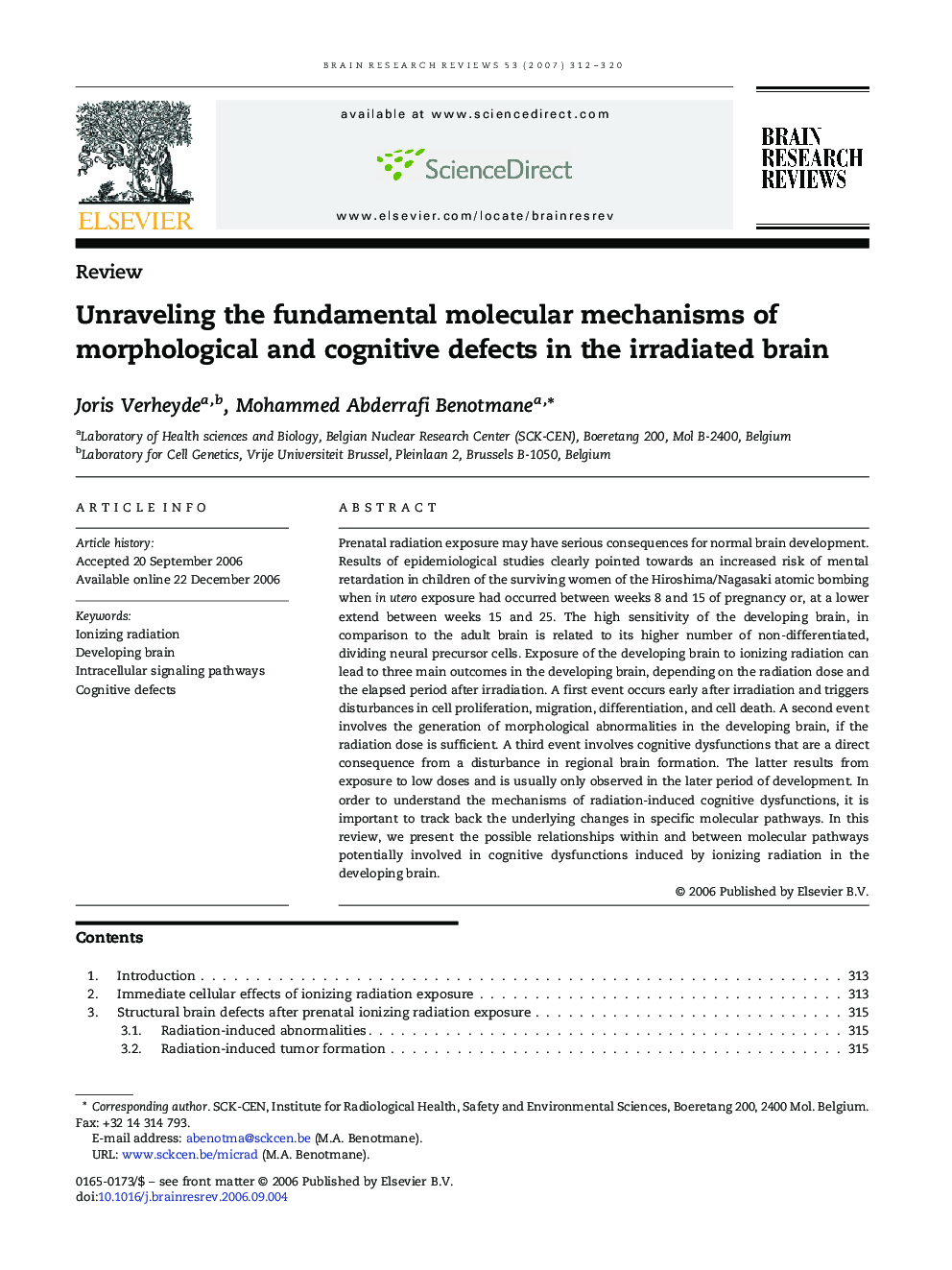| Article ID | Journal | Published Year | Pages | File Type |
|---|---|---|---|---|
| 4333981 | Brain Research Reviews | 2007 | 9 Pages |
Abstract
Prenatal radiation exposure may have serious consequences for normal brain development. Results of epidemiological studies clearly pointed towards an increased risk of mental retardation in children of the surviving women of the Hiroshima/Nagasaki atomic bombing when in utero exposure had occurred between weeks 8 and 15 of pregnancy or, at a lower extend between weeks 15 and 25. The high sensitivity of the developing brain, in comparison to the adult brain is related to its higher number of non-differentiated, dividing neural precursor cells. Exposure of the developing brain to ionizing radiation can lead to three main outcomes in the developing brain, depending on the radiation dose and the elapsed period after irradiation. A first event occurs early after irradiation and triggers disturbances in cell proliferation, migration, differentiation, and cell death. A second event involves the generation of morphological abnormalities in the developing brain, if the radiation dose is sufficient. A third event involves cognitive dysfunctions that are a direct consequence from a disturbance in regional brain formation. The latter results from exposure to low doses and is usually only observed in the later period of development. In order to understand the mechanisms of radiation-induced cognitive dysfunctions, it is important to track back the underlying changes in specific molecular pathways. In this review, we present the possible relationships within and between molecular pathways potentially involved in cognitive dysfunctions induced by ionizing radiation in the developing brain.
Related Topics
Life Sciences
Neuroscience
Neuroscience (General)
Authors
Joris Verheyde, Mohammed Abderrafi Benotmane,
